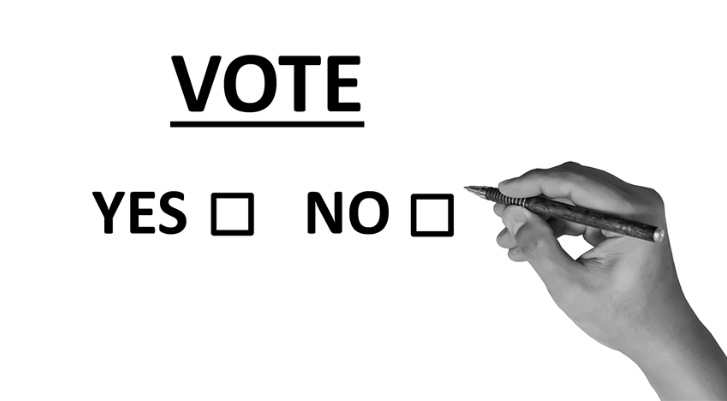
Daniella Zlotnik Raz
University of Haifa, Israel
daniella.zlotnik@gmail.com
Introduction
Youth political rights and political participation is (still) evolving in academia as a new frontier of children's rights. To date, much of the changes and discussions 'on the ground' concern lowering the voting age, developing mechanisms to enable youth participation in government, and acknowledging youth' role in political and social protest.
While the attention is focused on youth' right to vote and political participation, the closely linked right to be elected remains overlooked. This commentary will briefly explore what, if at all, the UN Convention on the Rights of the Child (CRC) can contribute to the discussion on youth and the right to be elected, by considering the CRC provisions themselves, as well as relevant views of the CRC Committee on this theme. Based on a children's rights perspective, the commentary will also review a recent decision by the Israeli High Court of Justice on youth' right to be elected, and consider what can be learned from this case example in relation to litigating youth' political rights in the future.
Youth' and the Right to Be Elected: A CRC Perspective
The CRC incorporates the full range of human rights for children, including civil and political rights. These rights include basic freedoms (e.g., freedom of expression, thought and conscience, association and peaceful assembly), and other rights related to political participation (e.g., protection from violence; access to information; education) (§13-15, 17, 19, 28-29 CRC). The CRC also introduced the concept of the child's evolving capacities (§5 CRC), recognising that with age, maturity and enhanced competences, youth require less guidance, and should enjoy greater agency in decision-making and in exercising their rights under the Convention, including in the political context.
In particular, the right to be heard (§12 CRC) is a significant provision in that regard. It provides a child (or a group of children), who is capable of forming his or her own views, to express those views freely in all matters affecting the child, and requires that the views of the child are given 'due weight' in accordance with the child's age and maturity, echoing the concept of 'evolving capacities'. The provision has been broadly conceptualized as 'participation', and it extends beyond hearing the child, ensuring that the views and opinions expressed are carefully considered, and have an impact (though not necessarily a decisive one) on a broad range of issues that impact the child's life, including in the political context.
Indeed, it is only recently that the CRC Committee began to comment on the political rights of children - particularly youth - and how these impact States' obligations under the CRC. Among others, the CRC Committee, in its 2016 General Comment, interpreted CRC provisions in relation to youth participation in political and social issues, and called for States' action regarding youth consultation. The Committee also encouraged States to lower the voting age (e.g., in Austria and Scotland where the voting age was lowered to 16 in national elections), and recently published a decision under the CRC Optional Protocol on a Communication Procedure concerning the exclusion of youth from the right to vote (the communication was ruled inadmissible on procedural issues). Yet, while the children's rights discourse on youth political rights and political participation is emerging, one aspect of youth political rights remains absent - the right to be elected.
The International Covenant on Civil and Political Rights (ICCPR) provides every citizen with a right to 'vote and be elected' (§25(b) ICCPR). The Human Rights Committee noted this right is at the 'core of democratic government' but allows restrictions that are 'justifiable on objective and reasonable criteria', including in relation to the minimum age to stand for election (HRC, 1996). Indeed, the CRC drafters at the end of the 20th century did not envision a child's right to vote, let alone a right to be elected. §12 CRC - which is the most appropriate 'hook' for political rights for youth - does not (yet) include a right to impact or decide, but only to be heard in others' decision making processes. The CRC Committee, in its 2009 General Comment, mentioned that §12 CRC does not provide a 'general political mandate', seemingly referring to the rights to vote and be elected - which are absent from the Convention.
While the CRC certainly anchors a broad 'right to be heard', standing for election means a right to be 'listened to' and represent others. This seems to go beyond the (current) scope of 'participation', and perhaps conflicts with other provisions (e.g., education, role of parents; §18, 29 CRC), as well as, perhaps, with the basic concept of the CRC itself: that children, due to their status, need special assistance and protection. A discussion on a right to be elected, then, raises new important questions relating to youth' legal status, evolving capacities, political rights, leadership and participation, and the adaptability of the CRC to youth' role in society in the 21st century.
Adjudicating Youth Right to Be Elected? An Israeli Case Example
In February 2020, Israel was (and still is) amid a political crisis. It was facing its third election in the span of a year, after attempts to form a coalition and establish a government continually failed. These were the circumstances for a petition filed by an NGO ('LEAD' organization) to the Israeli High Court of Justice (HCJ), requesting a legislative amendment to enable youth over the age of 16 to establish and register a political party for the upcoming elections.
The Israeli Political Party Act (1992) holds that only adults may establish a political party. This, according to the petition, deprives youth of their basic civil rights, including their right to take part in decision-making on political, civil and social matters, freedom of expression, freedom of association, and right to equality (claiming the current law amounts to age-based discrimination). Interestingly, the petition maintained that due to societal, educational and technological advances, youth in the 21st century are more capable and informed than ever before, and that their abilities to express their views, initiate and lead change at the national and global level require States to establish new mechanisms to fulfil their civil rights, including through parliamentary representation.
The HCJ dismissed the petition on procedural grounds, namely non-exhaustion of measures (HCJ Decision). Specifically, it ruled that the applicants did not provide adequate time for the State to respond to the claims before filing the petition (which is mandatory in Israeli law), and that by the time it was filed, the deadline to register political parties had already expired. Thus, to date, the question of whether excluding youth in Israel from the right to be elected violates their rights is still unresolved.
As the HCJ did not have the opportunity to consider the merit of the case, other points salient to the political participation of youth were ignored. First, why weren't individual youth included as applicants, alongside the NGO? What does this suggest in relation to youth' access to justice and the right to be heard? Second, why was 16 selected as the cut-off age to establish a political party, and can this be justified as an 'objective and reasonable' criteria, adapted for youth in the 21st century? Indeed, setting a minimum legal age in which a child can engage in specific activities and be entitled to certain rights and responsibilities is common practice in legal systems, and linked to the concept of the child's evolving capacities (e.g., minimum age of criminal responsibility, consent to sexual activity, driving). Yet, rigid cut-off ages are also inconsistent across States, may lack scientific or legal basis, and have been criticized as insensitive to children's individual capacities. While the petition referenced legal capacity in Israeli law and (some) minimum age requirements in comparative law, the grounds to petition for this specific age limit seem insufficient. Third, the most obvious omission in the petition concerned the related 'right to vote'. Israeli law only enables adults (18+ year olds) to vote in national elections. The petition focused solely on the right to be elected, neglecting the fact that youth themselves could not have voted for a youth-led political party. Indeed, it is strange to envision a 16-year-old being elected for parliament, while she herself is disenfranchised. This demonstrates how closely linked and inter-dependent the right to be elected and the right to vote are. Perhaps, even, it is equally strange to enable a 16-year-old to vote (as is the case in Scotland and Austria, for example), without allowing her to elect a peer to represent her needs and interests?. This generates additional discussions on the relationship between the right to vote and to be elected, youth representation in politics, and on political commitment to to youth-voters on matters relating to their lives.
Despite the dismissal, the HCJ implied in its decision that a future petition on the issue is possible, provided compliance with procedure. Thus, in Israel a judicial decision on the minimum age to establish a party and the right to be elected may only be a matter of time.
Strategic Litigation on Youth Political Rights - A Future Trend?
The Israeli case example shows how a youth' 'political' right is advocated for through strategic litigation, (as opposed to campaigns thorough advocacy or awareness raising) on the ground that youth exclusion violates their fundamental rights. This represents a new development that will likely bring about more cases and questions at the national and international level. For example, how the jurisprudence on youth political right will evolve, and how youth' access to justice and remedies will be fulfilled in this context?
Bio
Daniella Zlotnik Raz is a PhD researcher at the University of Haifa (Israel). Her PhD concerns the political rights of adolescents and their participation in electoral democratic governance, from a children's rights perspective. Daniella is also a lawyer and works at the legal department of the Israeli Council for the Child (NGO).
